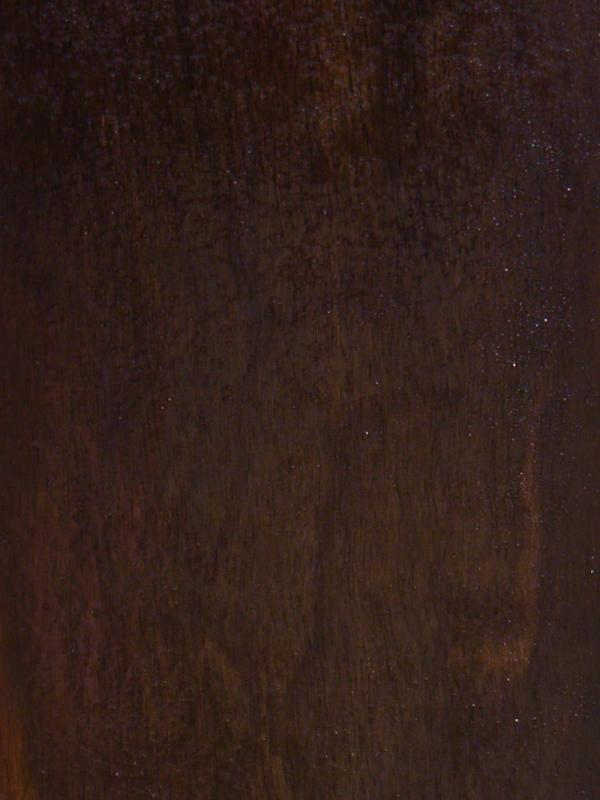
Family: Ebenaceae, the ebony family.
Origin: Southeast Asia and the Philippines.
Other common names: Golden ebony, camagon and indian ebony.
The tree: Macassar ebony is a small tree growing 50 ft. in height with a clear bole of 8 to 15 ft. and an average diameter of 16 in. It grows in rocky, well drained soil.
Appearance: The heartwood is black with reddish-brown to light brown streaks and the sapwood is a uniform light red. It has a straight to wavy grain with a fine texture and has a metallic luster.
Density: Average reported specific gravity varies from 0.60 to 0.80(ovendry weight/green volume), equal to an air-dried weight of 46 to 64 pcf. Janka hardness is 3250 pounds of force.
Drying & shrinkage: The black heartwood is very difficult to season as it is particularly prone to deep checking. For the best results, standing trees are often girdled and left standing, allowing to season in place for 2 years prior to felling, followed by 6 or more months of slow seasoning. Average reported shrinkage values (green to ovendry) are 5.4% radial and 8.8% tangential.
Working properties: Working with Macassar ebony is slow and difficult but if the correct cutting angle is used, there is little tool dulling despite its high density. It takes a smooth finish and polish to high luster. Glue holds well but is too hard to use nails and screws without pre-drilling. It turns excellently. Possible adverse reactions from the dust and wood include dermatitis, conjunctivitis, sneezing; possibly a skin sensitizer.
Durability: The heartwood is highly durable but only moderately resistant to termites. It cannot impregnated with preservatives.
Uses: Uses include turnery, piano keys, carvings, inlaying, musical instruments and marquetry.
Availability: The timber is rare and one of the costliest timbers on the commercial market. Veneer is more readily available but is also pricey.